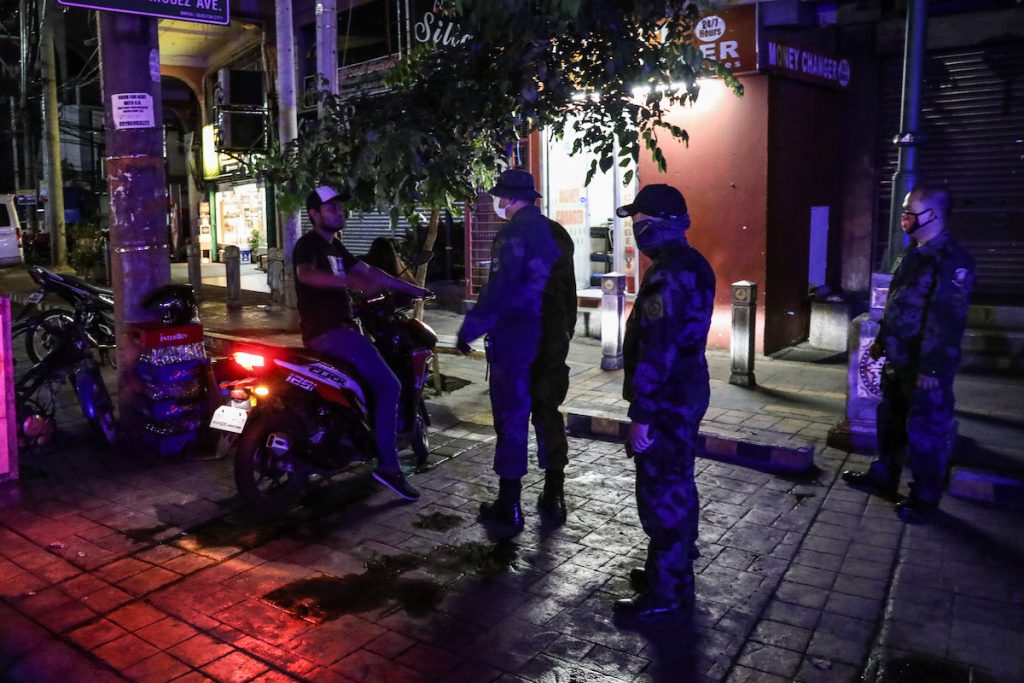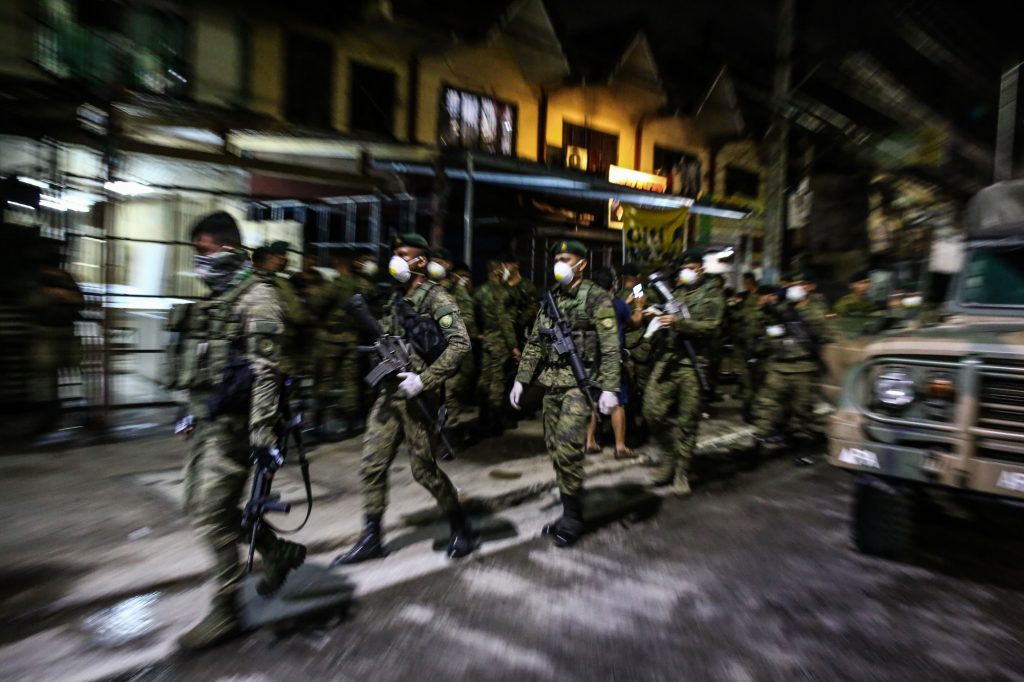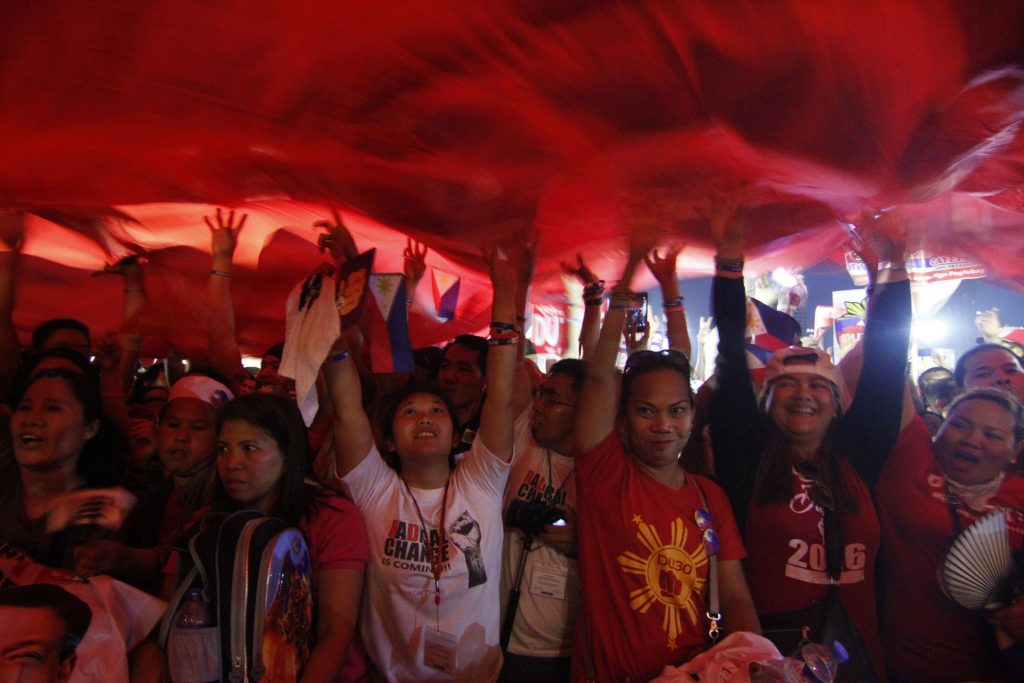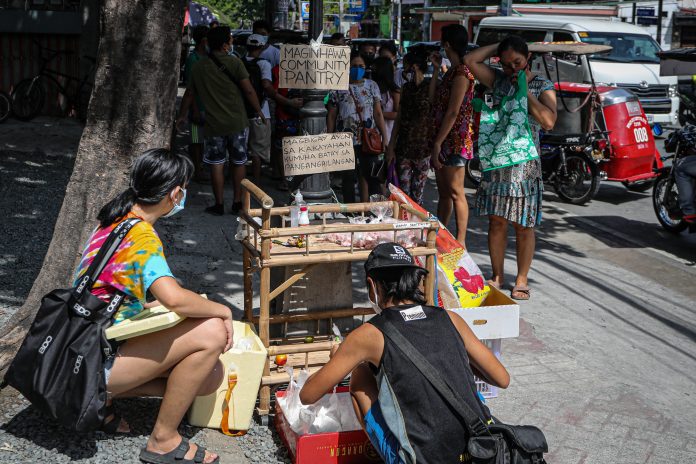Ernanie Lumban Jimenez may have had one too many swigs that night, more than sufficient to overlook the imposition of curfew under the recent enhanced community quarantine. The supposed “crime” was, by all standards, an innocent one, no more worthy of jail than a literal slap on the wrist.
That night, before three village watchmen kicked and beat him until he was dead (as five barangay officials did nothing but look on), all he wanted was to go to the john and relieve himself. Anyone who has imbibed more than his share of beer or whiskey knows that the bladder, in the end, will call them into account. Nanie, as he was fondly called, died four years shy of thirty.
This brings me to the memory of yet another incident: Darren Peñaredondo, after being caught breaking the six o’clock curfew, was instructed to do 100 pushups as punishment. Having failed to keep up with the other violators, Darren was then forced to do 300 more “squats” as penalty.
The next day, Darren suffered convulsions and died.
And what about that 15-year-old girl from Ilocos Sur? Arrested July last year for a breach of curfew, she was then raped while in the hands of two law enforcers. After filing a sexual assault complaint against the two cops at the police station, the girl was later gunned down by two men believed to be the same rapist-cops.
Remember former soldier Winston Ragos? He was shot dead by police officers during the early days of lockdown after the former argued about the way cops were enforcing quarantine rules. An investigation conducted by the National Bureau of Investigations revealed that the cops not only murdered Ragos but also planted evidence to skirt prosecution.
In a poorer section of Metro Manila, earlier this year, an old woman preparing to do her laundry just mere inches from the door of her home was harassed and nearly arrested by barangay officials for supposed breach of quarantine protocols. In yet another video posted online, a young man was arrested for “violating quarantine” while inside the gates of his home.
How many more incidents like these remain unreported?
We flip open our phones, tablets or laptops every day and this sort of news screams at our faces. And yet, we cannot miss noticing that the people who frequently figure in these crimes are normal, everyday folks, not demons with horns, a tail and pitchforks, or Hollywood’s version of the cigarette-chumping, hairy chest-bare bad men. They’re mostly neighbors, the average, well-nigh run-of-the-mill person we say “hi” to in the morning when on our way to the grocery.
We begin to wonder: what triggers the monster in people?

The two books that help explain why ordinary people cross the line of decency and do the crimes that they do are: philosopher Hannah Arendt’s Eichmann in Jerusalem: A Report on the Banality of Evil, and Croatian journalist Slavenka Drakulić’s They Would Never Hurt a Fly: War Criminals on Trial in the Hague.
In Arendt’s portrayal of the evils of Nazi Germany in the 1940s, she came to two conclusions: Aside from evil coming as a failure to think, evil also comes as a failure to distinguish between one’s “private and public functions.”
The person’s inability to tell the connection between the private and the public act puts all decisions done in one’s professional capacity—like murder, for example—as something totally unrelated to one’s private culpability.
Thus, the person murdering as a professional obligation—the executioner—believes he is innocent of the crime. In short, “We were only following orders”.
The same is true Slavenka Drakulić’s description of the people who committed rape, murder, torture and executions during the war that ripped the old Yugoslavia apart. “Who were they? Ordinary people like you or me—or monsters?” Arendt capped this question by saying, “Out of sheer passion, he would never do harm to a fly.”
Drakulić builds a case on the ordinariness of these people when she wrote, “If you had met any of these three men before the war, you would probably not have thought of them as particularly violent. They were not very different from other men—just three guys who liked to hang out in bars. Then the war came, and now it is over. Next thing you know, they are in prison. You read in the newspapers about what they did, and you wonder if it is really possible. Can ordinary men behave like that? Your neighbors, perhaps? Your relatives? No, it cannot be. They look so normal. You look for some obvious sign of perversity, some sign that will help you recognize them as criminals.”
But there was none, save perhaps the unpredictable shaping of a conviction that led them to do such atrocities in the first place. But in the case of ordinary people, such convictions are revealed only after the act, and by then, it’s too late. The rape, the torture, the murders and the unbelievable damage in human lives had already taken place.

We see this today in Rodrigo Duterte’s dystopia where military generals red-tag journalists and activists, and online trolls—some claiming to be university professors—harass their students for speaking out. All in the name of what they believe is a professional gallantry better served by their titles.
Yet, when one looks into their online profiles, most play the role of distinguished family men who love to party, spend time with the kids, even date loved ones. Some read books, others spend a motley fortune on Netflix and other recreational stuff. Others would give a hand and a foot to spend a day or two on the beach with relatives and friends.
For who would’ve thought that a highly-respected law professor, one who loves the outdoors, would someday lie through his teeth if only to defend the president’s bloodlust?
And who would’ve thought that a certain Digong, a former prosecutor, then mayor of a cosmopolitan city, would launch in Philippine soil one of the bloodiest and barbaric campaigns ever against illegal drugs, even use the COVID-19 pandemic as an arsenal against his people? All in the name of “national security.”
Where we stand today is where the dictator wants us to stand: on a virtual minefield where the slightest miscalculation could land us either dead by assassination or dead by COVID-19. Our indecision as to whether this president, ham-fisted and altogether fumbling about, should stay or not tells us that the more we do nothing to change our situation, the longer it would take to mend the wounds his incompetence has inflicted on us.
And make no mistake: all who’ve supported his bloody campaigns against free speech and the crushing of the Bill of Rights is just a guilty as the very ones who pulled the trigger.
One year into the tokhang regime and it’s easy to conclude that this is all sheer madness, a time of confusion. But four-to-five years into the bloodletting, there is no denying that there is a method to the madness, a decisive attempt to systematize murder and standardize its acceptance.
By this time, intent is undeniable. There is no skirting around it. And those who stood by the president’s seemingly sentimental devotion to the killings and to China, even after the latter’s multiple incursions into our territory, cannot get away using a Pontius Pilate excuse. Washing of hands is out of the question.

These Duterte loyalists are not as stupid or “lost in translation” as they’re ballyhooed to be. They are no different from the anti-Semites of the last war, as Jean-Paul Sartre aptly observed:
“Never believe that anti-Semites are completely unaware of the absurdity of their replies. They know that their remarks are frivolous, open to challenge. But they are amusing themselves, for it is their adversary who is obliged to use words responsibly, since he believes in words […] They delight in acting in bad faith, since they seek not to persuade by sound argument but to intimidate and disconcert.” This was written sometime in the 1950s, yet this is true today among Duterte loyalists as it was in Hitler’s Nazi Germany.
The good news: people are beginning to wake up. Slowly but surely, they are taking their grievances to the streets, but scantly in the manner or form everyday protests are done.
On the matter of government’s mismanagement of the pandemic, Filipinos chose the way of compassion by putting up hundreds of community pantries all over the country. From its humble beginnings in Maginhawa Street, it spread to the National Capital Region and adjacent provinces. The rule is simple: “Take what you need, share what you can”. It’s free.
As for the violence and rampant killings, the call of the public for Duterte to resign his post comes at an opportune time. When you have ordinary citizens speaking out their minds regardless of the clear and present dangers around them, you know this is not desperation but a show of courage.
I doubt if Duterte will step down. But giving him sleepless nights from this day forward is a good first step.
Joel Pablo Salud is an editor, journalist and the author of several books of fiction and political nonfiction. He is currently the chair of the Philippine Center of International PEN’s Writers in Prison Committee. The views and opinions expressed in this article are those of the author and do not necessarily reflect the official editorial position of LiCAS.news.









